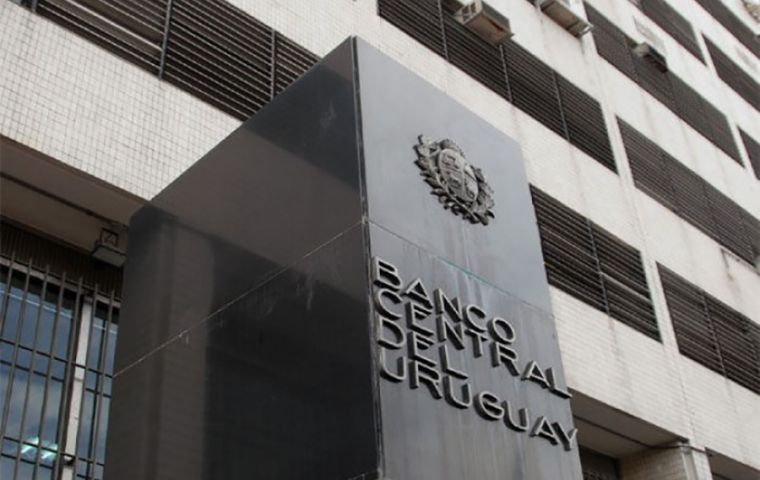MercoPress. South Atlantic News Agency
Canadian rating agency praises Uruguay's fiscal consolidation and raises BBB- trend from stable to positive
 The Positive trend reflects DBRS' view that Uruguay’s fiscal outlook has improved due to fiscal consolidation efforts and improvements to the budget
The Positive trend reflects DBRS' view that Uruguay’s fiscal outlook has improved due to fiscal consolidation efforts and improvements to the budget Canadian credit rating agency, DBRS Morningstar confirmed Uruguay's Long-Term Foreign and Local-Currency – Issuer Ratings at BBB-, and at the same time, elevated its prospect from stable to positive.
The Positive trend reflects DBRS Morningstar’s view that Uruguay’s fiscal outlook has improved due to fiscal consolidation efforts and institutional improvements to the budgetary framework. While spending rigidities remain a medium-term credit challenge, tight expenditure control by the president Lacalle Pou administration and the phasing out of pandemic-related programs next year should help put public finances in a more sustainable position.
Some of the upward pressure on the ratings also stems from the cumulative effects of gradually diversifying Uruguay’s economy and reducing the country’s exposure to external shocks. The Uruguayan economy bounced back from the pandemic in the first half of 2021 but the recovery was uneven. While a large wave of COVID-19 cases from March to June delayed the revival of private consumption, investment and exports expanded quickly.
Fixed capital formation increased 21% in real terms in the first six months of the year relative to the prior year. The boom in investment was driven by the construction of a large new pulp mill in central Uruguay and an associated railroad project. Goods exports also increased markedly, due to a pick-up in global demand and higher prices for agricultural commodities.
While consumption underperformed, the outlook is better for the second half of 2021 and 2022. New COVID-19 cases are now at low levels and 75% of the population is fully vaccinated. Uruguay reopened its borders in November to vaccinate non-residents, which should support the tourism sector. In addition, high-frequency unemployment insurance data points to a recent strengthening in the labour market.
Overall, growth prospects look better than in the pre-pandemic period. The IMF projects GDP growth of 3.2% in 2022 and 2.7% in 2023. The confirmation of Uruguay’s BBB (low) ratings balances its strong political and macroeconomic fundamentals with its medium-term fiscal pressures, modest productivity growth, a partially dollarized financial system, and limited financial depth.
The political environment is characterized by high-quality public institutions, low levels of corruption, and predictable macroeconomic policymaking, all of which constitute an important source of credit strength.
However risks stemming from volatility in the region are elevated, but ample foreign exchange reserves, conservative public debt management, diversified export markets, and sound regulation of the banking system bolster the economy’s defences to potential shocks.
The government has made progress in its multi-year fiscal consolidation plan. The central government deficit (excluding the “cincuentones” pension transfers) is expected to narrow from 5.8% of GDP in 2020 to 4.9% this year, even as the government has continued to provide emergency support to households and firms affected by the pandemic. As emergency expenditures expire and the cyclical recovery advances, the deficit is projected to decline further to 3.1% in 2022, nearly one percentage point better than before the pandemic in 2019




Top Comments
Disclaimer & comment rulesCommenting for this story is now closed.
If you have a Facebook account, become a fan and comment on our Facebook Page!